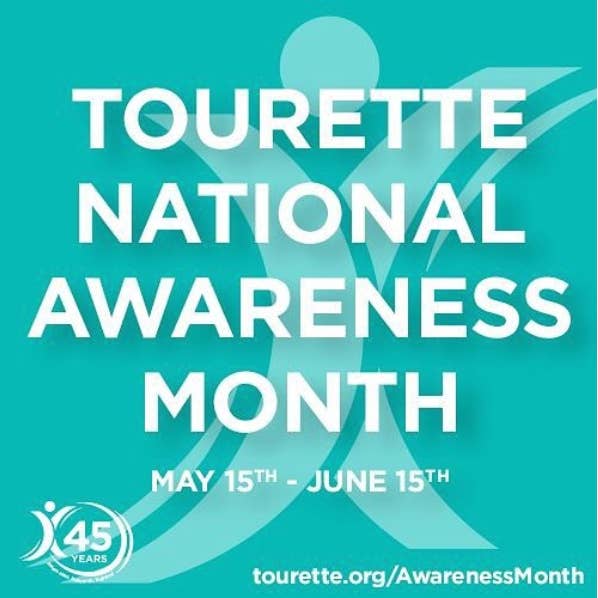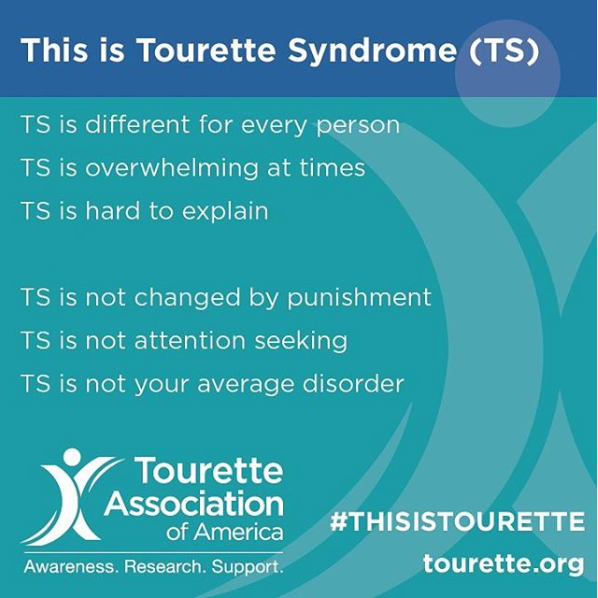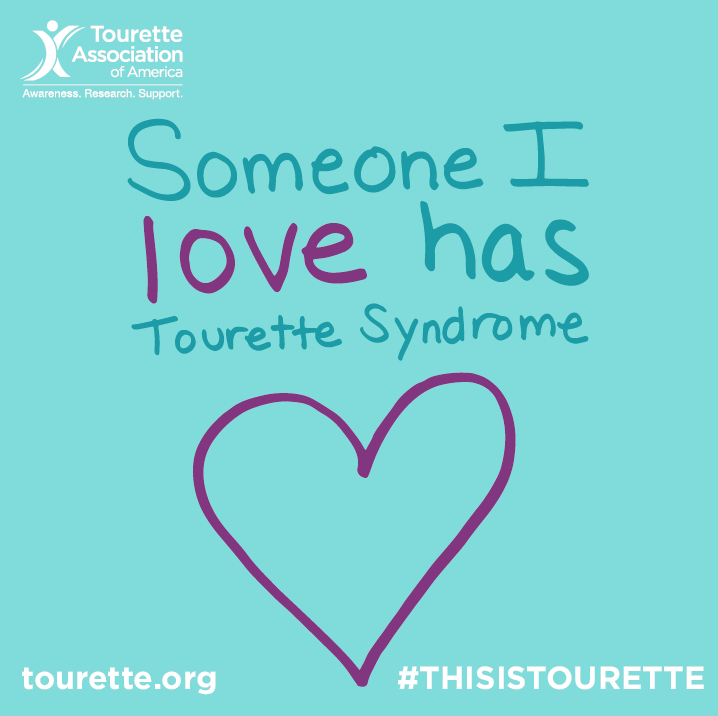It's currently Tourette Awareness Month, so we asked the Tourette Association of America to share some of the biggest myths people believe about Tourette Syndrome:

Myth 1: Tourette Syndrome is extremely rare.
Actually, it's estimated that every 1 in 100 school-aged children suffer from Tourette Syndrome or a related Tic Disorder (although half of these children are not diagnosed).
Myth 2: Everyone with Tourette Syndrome blurts out obscenities.
Myth 3: Everyone who has tics also has Tourette Syndrome.
With tic conditions, there's a spectrum that ranges from simple, temporary tics lasting for a few weeks or months, to multiple complex tics in one or more parts of the body that can be permanent.
Within each situation, there's also a range of severity — from mild and infrequent to severe and disabling. To be diagnosed with Tourette Syndrome, you must have a history of a number of motor tics and at least one vocal tic, with tics being present on and off for more than a year.
Myth 4: People with Tourette Syndrome can control their movements and sounds if they really want to.

Myth 5: If I can’t see the tics, they must be doing better.
Tourette Syndrome is a lifelong disorder, so — while symptoms evolve over the years and some tics come and go — a lack of visual tics does not mean an individual is “doing better” or “cured.” There is no cure for Tourette Syndrome.
Myth 6: Tourette Syndrome is caused by stress or an unhappy childhood.

Myth 7: Tics only occur in children.
Nope. Tics and Tourette Syndrome occur in all age groups. And while it's true childhood tics can decline as one ages, many adults live their entire life with persistent tics ranging from mild to severe.
Myth 8: People with Tourette Syndrome suffer from mental illness.

Myth 9: People with Tourette Syndrome are not as intelligent as others.
People living with Tourette Syndrome can be highly intelligent. However, a portion of people with Tourette Syndrome also have learning disabilities or other comorbidities such as OCD, ADHD, and anxiety disorder.
So, if tics and other associated learning disabilities interfere with an individual’s ability to perform or gain social acceptance, adjustments may be needed to create an environment that is conducive to their needs.
Myth 10: People with Tourette Syndrome can’t lead normal lives.

Myth 11: Tourette Syndrome is more common among certain ethnic groups than others.
This one is a myth too — Tourette does not affect one racial or ethnic group more than any other.
